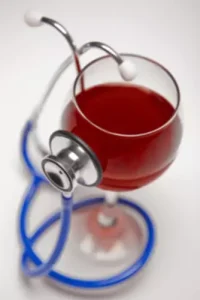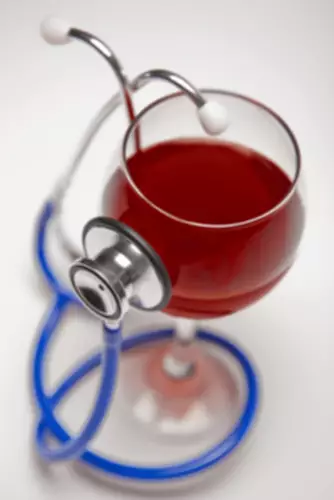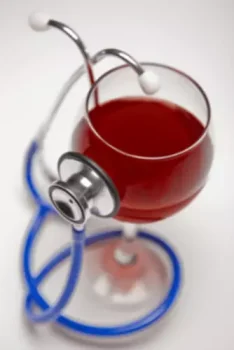
Overall, obesity is a multi-factorial condition and it is difficult to truly assess the independent influence of alcohol intake on obesity risk. The slow development of obesity and multi-faceted nature of this condition really complicates the possibility to show a cause-and-effect association between alcohol consumption and weight gain. Thus, we need to rely on short-term intervention studies and epidemiologic studies, each of which has clear limitations in showing an effect of alcohol intake on the vulnerability to gain weight. However, the preponderance of the evidence taken as a whole suggests that alcohol may be a risk factor for obesity in some individuals, especially when consumed in large quantities. Another important confounding factor to be considered is physical activity level. Furthermore, beer and spirit drinkers appear to have poorer dietary habits in general than wine drinkers 3•.
How Alcohol Affects Blood Sugar
However, you should consume them moderately as they’re also easier to overconsume. If consuming alcohol in the evening, do so at least 3 hours does drinking vodka make you gain weight before going to bed. This will allow your body enough time to metabolize the alcohol properly. Then you should be able to avoid poor sleep quality as your body can achieve a night of deep sleep.

Alcohol Consumption and Obesity: An Update
Research has shown that heavy drinking also worsens cardiometabolic index (CMI). CMI is the product of waist-to-height ratio and triglycerides-to-HDL (“good”) cholesterol ratio that assesses your risk for heart disease. A lack of sleep, or poor quality of sleep, increases your appetite and cravings for junk food rich in refined carbohydrates and decreases your energy expenditure on the following day. As well as the result of passing your tipping point, research shows that poor sleep quality following binge drinking significantly affects weight.
Does Alcohol Make You Gain Weight?
“That’s why people talk about having an increased tolerance to alcohol, because the liver has adapted to cope with it.” After a long day at work or at a particularly stressful event, there are few things more refreshing than a cold vodka cocktail. After all, a serving of vodka delivers a nice punch of alcohol to your system, relaxing you and getting the dopamine flowing in your brain. Suddenly you’re less worried than you were before and enjoying the warmth of the beverage as it spreads through your body. Josh holds a Bachelor’s degree in Exercise Physiology and Nutrition Science.
- Mix alcoholic drinks with water, club soda, or calorie-free diet sodas instead of sugary sodas and pre-made mixers.
- “If you’re trying to lose weight, what you really want to happen is you want fat burning to be turned on as much as possible,” Wyatt says.
- First, diet mixers contain a mixture of artificial sweeteners and flavorings with zero calories, giving drinks a sweet taste.
- This response can vary greatly from person to person, and it’s important to recognize that your own metabolic reaction to alcohol could be different than your friend’s.
- In contrast, light-to-moderate alcohol consumption does not cause weight gain.

However, there is a thin line that is easy to cross if you aren’t keeping your drinking and choices under control. Alcohol consumption can lead to weight gain and increases in belly fat (4). However, the most significant cause of weight gain in the stomach due to alcohol consumption is the empty calories your body has to burn off and then consume bad foods. National Longitudinal Study of Adolescent to Adult Health from people when they were in their late teens and early twenties and again when they were in their mid- to late-twenties and early thirties.

Buying the single glass bottle of wine is easiest for me until I reset my mind to only have this amount. The survey also highlighted that the day after passing their tipping point, 50% of people cancel planned physical activity, often replaced with sedentary activities such as watching TV or staying in bed. These numbers are significant; alcohol is a very high-calorie product and provides 7 calories per gram. If you’d like to give us a go, click here to try our weight loss calculator to see how much you could lose with Second Nature. Most people intuitively know that alcohol equals unnecessary calories.
Why Does Your Personality Change When Drinking Alcohol?
Other spirits, such as gin, are also virtually calorie-free, while whiskey has fewer calories than beer because it’s not brewed with added sugars. However, be mindful that some drinks contain more calories than others—for example, a mix of shots with soda, water, or tonic will result in more total calories consumed per serving. It’s important to note that studies tend to lean toward more benefits coming from light drinking, which would be no more than seven drinks a week. Moderate (eight to 14 drinks per week) and heavy (more than 15 drinks per week) were shown to elevate blood pressure.
- Observational studies on the effect of alcohol intake on obesity date back almost 30 years 6.
- Alcohol can irritate the stomach and intestines, causing gastritis, which can cause abdominal bloating.
- Spirits, when drunk neat, can be one of the better choices for alcoholic drinks for losing body weight.
- But calorie content is just the beginning of your alcohol-induced weight gain journey.
Or maybe you’ve had a rough day and treated yourself to half a standard marijuana addiction bottle of Rosé. You could blame your ancestors for this as they needed a way to store energy if they didn’t always have food. Alcohol can irritate the stomach and intestines, causing gastritis, which can cause abdominal bloating. If you want to fight that post-drinking bloat and digestive distress, one of the best things to do is get back on track as soon as possible.
